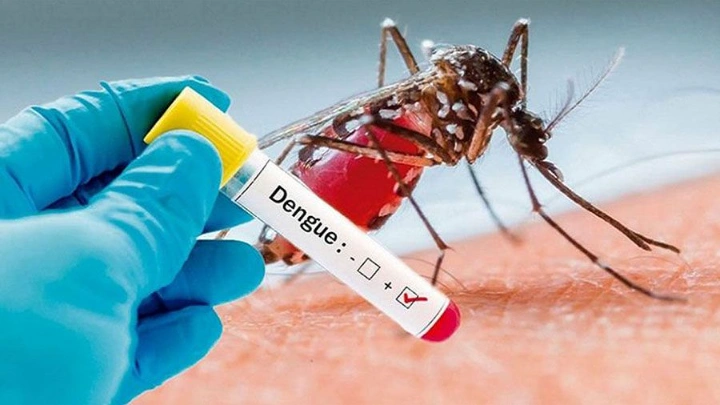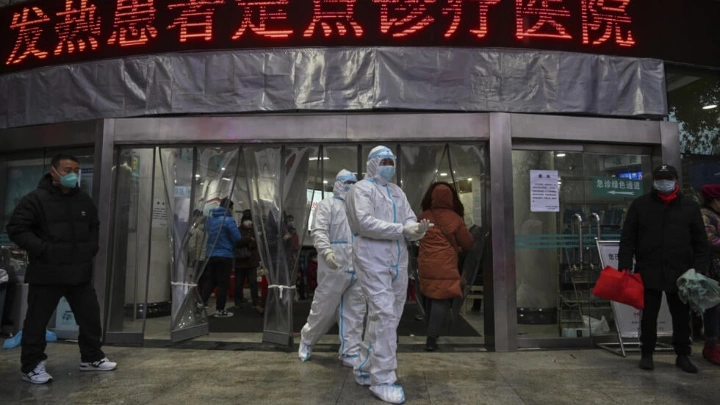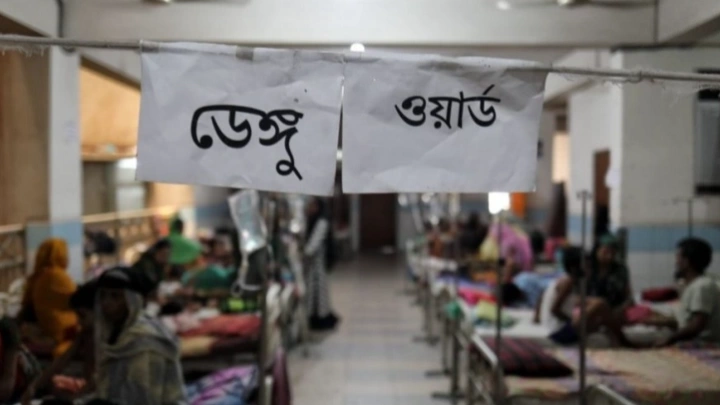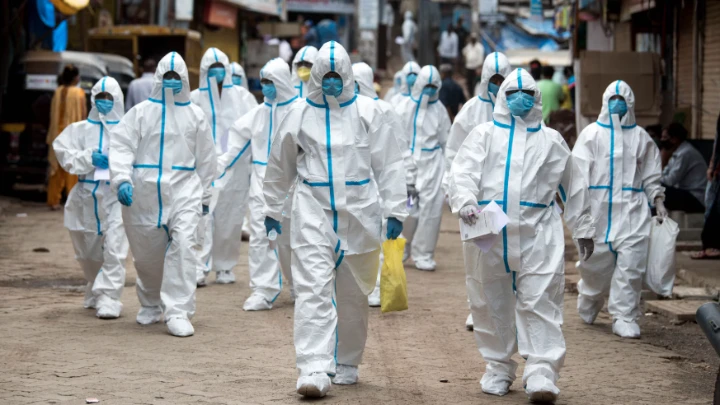Experts call for immediate steps so country doesn’t face similar situation this year
Highest dengue deaths last year
Shining BD Desk || Shining BD
At least 281 people succumbed to dengue last year, while 62,382 patients were hospitalised, the highest deaths and second-highest cases ever recorded in the country.
Among the patients, at least 27 died and 5,024 were hospitalised in December. Such unusually high numbers have never been recorded during this season since the first outbreak in 2000.
Meanwhile, at least 41 dengue patients were hospitalised in the last 24 hours till yesterday morning.
Changing temperature patterns, lack of proper initiatives by authorities concerned, and residents not destroying Aedes-mosquito breeding spots are the main reasons for so many cases in December, said experts.
The ideal temperature for dengue transmission remained throughout last year in Bangladesh. Moreover, for Aedes mosquitoes to breed, stagnant water in the open was also available.
Kabirul Bashar Entomologist of Jahangirnagar University
They urged the authorities to take steps right from January so that the country does not face such a situation this year.
According to the Directorate General of Health Services (DGHS), 1,01,354 people, the highest ever, were hospitalised and 179 died in 2019.
Kabirul Bashar, an entomologist of Jahangirnagar University, said some changes have been witnessed in the urbanisation pattern, like the construction of high-rises. This is one of the major contributors to the high number of cases even in December.
He said the ideal temperature for dengue transmission remained throughout last year in Bangladesh. Moreover, for Aedes mosquitoes to breed, stagnant water in the open was also available.
There are many multistorey buildings where parking lots are used for washing cars, and water remains collected there, ultimately becoming breeding spots, Bashar said.
"Besides, the presence of Aedes mosquitoes can be found in 60 percent of the basements of under-construction buildings in Dhaka, as stagnant water remains there," said Bashar, who conducts surveys with his students regularly.
Last year, the temperature fell a bit late, and this contributed to the situation in December. The population of Aedes mosquitoes comes down when the temperature is 15 or 16 degrees Celsius or less.
GM Saifur Rahman Entomologist of National University
He said amid a scarcity of Wasa's water, people tend to keep water stored in drums or buckets for using it later. And these containers become breeding spots even in this season.
Moreover, construction of many mega projects are ongoing, and mosquitoes take refuge at these sites to breed, he mentioned.
Bashar said as Aedes mosquitoes bred round the year, people saw high cases even in December. To prevent this, authorities will have to conduct anti-mosquito drives throughout the year.
Alongside work of city corporations, involving general people to tackle the menace is a must, as they can destroy breeding spots at their homes, he added.
Entomologist GM Saifur Rahman of National University said this year, the temperature fell a bit late, and this contributed to the situation in December.
He said the population of Aedes mosquitoes comes down when the temperature is 15 or 16 degrees Celsius or less. "As the temperature has started to fall, we hope the population will go down, and eventually, cases will also decrease."
"For how long low temperatures will prevail is also a factor. If it's cold for a long time, we will be protected [from dengue], but if it's a short winter, cases will rise again," he added.
Saifur said as Culex mosquitoes are also breeding earlier than the usual period, authorities will have to arrange separate teams for conducting drives against both Culex and Aedes mosquitoes.
Authorities will have to find out what's the actual breeding situation of Aedes mosquitoes and then take necessary steps, he said.
It would be easier now to find the active dengue clusters in areas, as cases are starting to come down. Then authorities will have to destroy the clusters properly by taking intensive control measures, Saifur added.
If they can do this in the next one or two months, they will get better results, and cases will remain low in the next season, he said.
Saifur said, "The government will have to form its body or policy to tackle the dengue situation and manage logistics from the lean period, so that they do not face difficulties during the outbreak next season."
-DailyStar
Shining BD






















